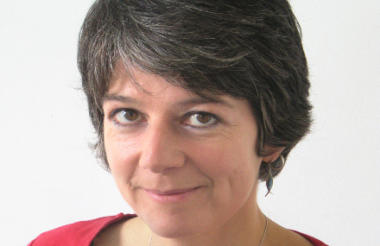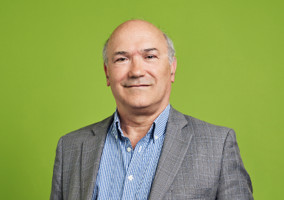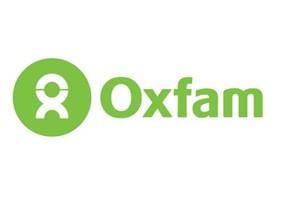Leading UK aid charities have committed to new principles relating to safeguarding, as the development secretary calls for greater international cooperation.
Bond, the umbrella body for international development charities, said it held a meeting yesterday with a number of almost 20 leading charities where they agreed a new set of principles.
The principles include “full disclosure of all safeguarding concerns at the earliest opportunity” and collaborating with the Department for International Development and the Charity Commission on a new system for “passporting, registration or accreditation of humanitarian and development practitioners”.
It has emerged that the Oxfam country director in Haiti who resigned in 2011 over the sexual misconduct investigation, Roland van Hauwermeiren, had previously been pushed out of a job at Merlin, now part of Save the Children, and that after leaving Oxfam had gone on to work for Action Against Hunger between 2012 and 2014.
In a statement, Action Against Hunger said it had not received any information about van Hauwermeiren or “warning on the risks of employing him”. It has now “begun a process to closely scrutinise the time he was employed by us, and Action Against Hunger commits to full disclosure, collaborating in full with the authorities.”
‘Sector is committed to responding’
Tamsyn Barton, chief executive of Bond, said: “The sector is committed to responding to the justifiable anger felt by the communities we work with, the British public and colleagues.”
The new principles are:
- Ensuring that the culture within our organisations provides a safe and trusted environment that encourages those affected to come forward and report incidents
- Assuring the regulatory bodies that they have full disclosure of all safeguarding concerns at the earliest opportunity
- Sharing with the regulatory bodies the safeguarding policies and practices already in place, as well as how incidents and allegations are handled when they arise
- Where not done already, sharing the details of any incidents with the regulatory bodies
- Increasing investment and resources towards safeguarding and protecting the most vulnerable
- Ensuring that the highest safeguarding standards are applied throughout our programmes and that best practice is shared across the sector
- Carrying out work, which is already underway in collaboration with DFID, the Charity Commission and global bodies, to explore a system of passporting, registration or accreditation of humanitarian and development practitioners which will be accelerated under the leadership of UK NGOs in the hope that it may influence the practice and standards of the global aid community
VSO: We will not be complacent
VSO is one of the charities which has committed to the new principles. In a blog on its website, chief executive Philip Goodwin outlined the measures that VSO has taken so far, and said he was committed to making any improvements necessary.
“Whether we invite it or not, aid organisations are held to a higher standard,” he said.
He said all VSO volunteers have criminal record checks and that its safeguarding policies and codes of conduct “are clear on what behaviours we expect from employees and volunteers and we have firm procedures for disciplinary action in the event these policies are breached”.
VSO also has a named member of staff in each country who acts as safeguarding lead, and is available 24 hours a day and a central team of specialists.
“I’m confident that VSO operates and maintains high standards, but we are compelled to act in light of news reports,” he said. “As a first step I have asked for an assessment to ensure that our policies and procedures are as robust as they possibly can be. If we find there is room for improvement, we commit to undertaking what needs to be done.”
He added that “we will not be complacent going forward”, and that the charity will work with others to “see how we can work better together to tackle sexual exploitation collectively”.
Earlier this week, Save the Children’s chief executive Kevin Watkins wrote a similar piece outlining the actions his charity is taking and calling for higher standards of accountability.
Watkins also made a number of proposals to DfID and the sector including the “introduction of mandatory humanitarian passports” and “new regulatory standards that ensure all humanitarian agencies have a legal obligation to report any dismissals”.
Mordaunt: ‘the past week has been a wake up call’
This morning Penny Mordaunt, secretary of state for international development, gave a speech at the End Violence Solutions Summit in Sweden, where she called on the international community to do more.
She said the past week was a “wake up call” and said everyone must do more to ensure vulnerable people are protected.
“If we don’t want the actions of a minority of individuals to tarnish and endanger all the good work that we do, then we must all respond quickly and appropriately.
“We must regain the trust of the public.”
She outlined the approach her department is now taking, following an announcement earlier this week that DfID is setting up a new unit, writing to all charities that get UK Aid and working with the Charity Commission. She said: “We will not wait for the UN and other organisations to step up. The British government will take action now.”
She added that: “We will urgently look into how we can stop sexual abusers and predators from being re-employed by charities, including the possibility of setting up of a global register of development workers.”
DfID and the Charity Commission will hold a summit for aid charities later this month which will be an opportunity to discuss “new ways of vetting and recruiting staff”.
Mordaunt said: “We are all taking necessary actions to ensure criminals are brought to justice, organisations are held to account, and procedures to change and stop sexual exploitation, abuse and rape.
“And today, I’m calling on all of us to work together to do this. It is only through working together that we can achieve our shared goal of ending violence against children.”
|
Related articles










